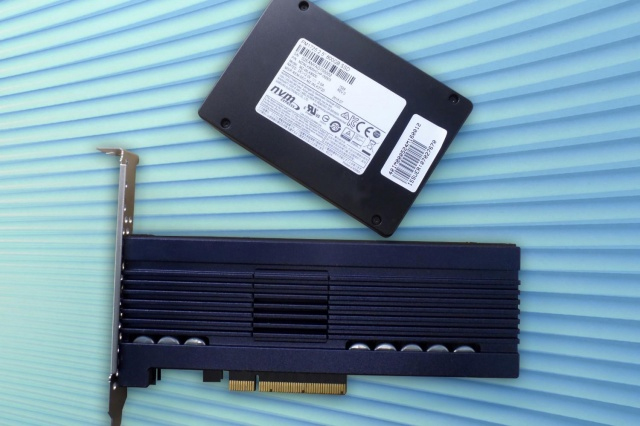
Not only is the Samsung’s enterprise-focused PM1725 drive a whopping 15.63 terabytes in size, but it has been tested hitting a sequential read speed of more than 6.2 gigabytes per second. To put this into perspective, that’s faster than the data rate of your average DDR3 memory powered RAM disk (as per TomsHardware).
Of course, since this is the metric that Samsung was most proud of, you might expect other numbers to be weaker, but they aren’t. Looking at random reads, the Samsung drive recorded over a million input/output operations per second (IOPS) which far and exceeds what traditional SSDs are capable of.
Related: Intel set to retool Chinese facility to build 3D NAND, XPoint chips
Although slower, random write speed was similarly powerful, with a 4K random write test outputting over 343,000 IOPS during testing. Sequential write speeds were around 2GBps, making this a monster drive in almost any scenario.
While at this size and performance we would expect this to be more server hardware than something designed with gamers in mind, it will be very exciting to see this technology drip down to the consumer market — given Samsung’s history, we doubt that’ll take much time. We do know however, that it will likely require a high-speed PCI Express port to handle all that bandwidth, with early recommendations from Samsung pointing the finger to a PCIe 3.0 x8 slot.
Although it looks like it will one day be made available in 2.5 inch form factor, the fact that that style of storage is dying off could pave the way for even more powerful and small form factor laptops and tablets.
Just don’t expect this to be cheap when it first comes out. Especially at that sort of size.



